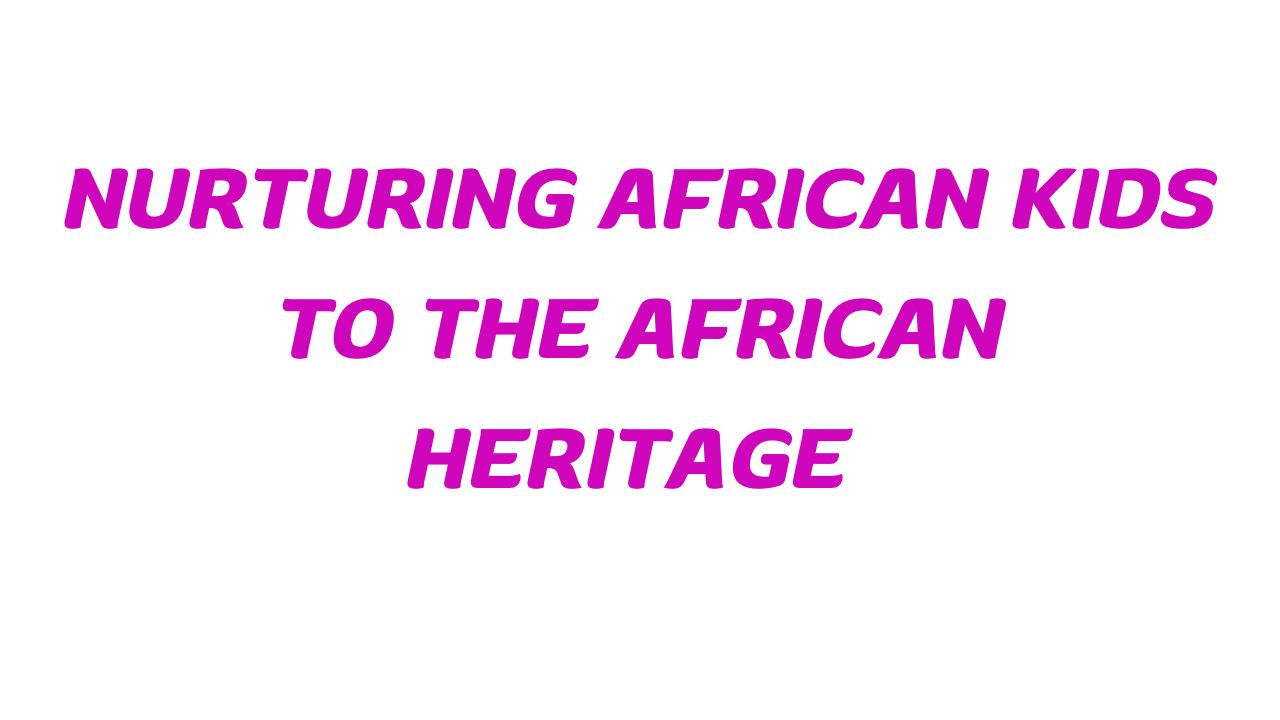In today’s fast-paced, digital world, children are growing up immersed in global cultures, often at the expense of their own. For African children, especially those born or raised in the diaspora, maintaining a connection to their roots can be challenging. Yet, embracing African heritage is not only essential for identity formation but also enriches a child’s worldview, fostering pride, confidence, and cultural appreciation.
Endearing kids to the African heritage begins with storytelling. African history is rich with folktales, proverbs, and legends that offer lessons in bravery, community, respect, and wisdom. These stories, passed down through generations, connect children to the values and philosophies of their ancestors. Parents, educators, and community leaders can breathe life into this tradition by sharing these stories in engaging, age-appropriate formats—books, animations, puppet shows, or family story nights.
Language is another powerful tool in nurturing heritage. Introducing children to indigenous African languages like Yoruba, Swahili, Igbo, or Zulu helps them understand the rhythm, humour, and cultural nuance embedded in African life. Even learning a few common phrases or songs can spark curiosity and open doors to deeper learning.
African music, dance, and food offer vibrant, joyful pathways to cultural pride. Kids light up when they learn traditional dances, play African drums, or help cook jollof rice or injera with family. These hands-on experiences become cherished memories and personal rituals that root them in something meaningful and familiar.
Celebrating cultural events like African Liberation Day, Kwanzaa, or Nigeria’s Independence Day provides opportunities to wear traditional attire, participate in community gatherings, and witness African excellence in art, leadership, and innovation. These moments affirm their identity and place in the global African story.
Importantly, role models matter. When kids see authors, scientists, artists, and entrepreneurs who look like them and embrace their African roots, it normalizes success and resilience within the culture. Schools and organizations can support this by including African history and achievements in their curriculum and programming.
In endearing kids to the African heritage, we give them more than knowledge—we gift them with belonging. When children know where they come from, they walk taller, dream bigger, and carry their culture forward with pride and purpose.

